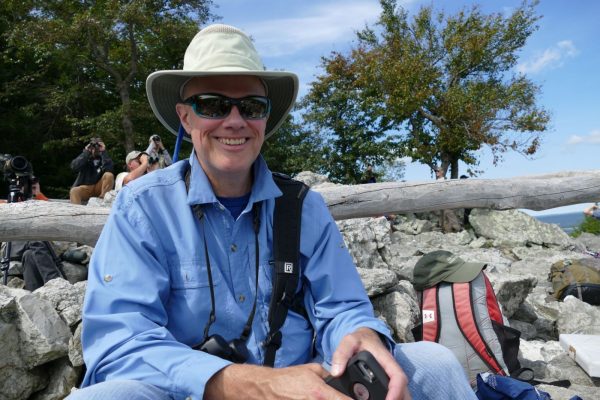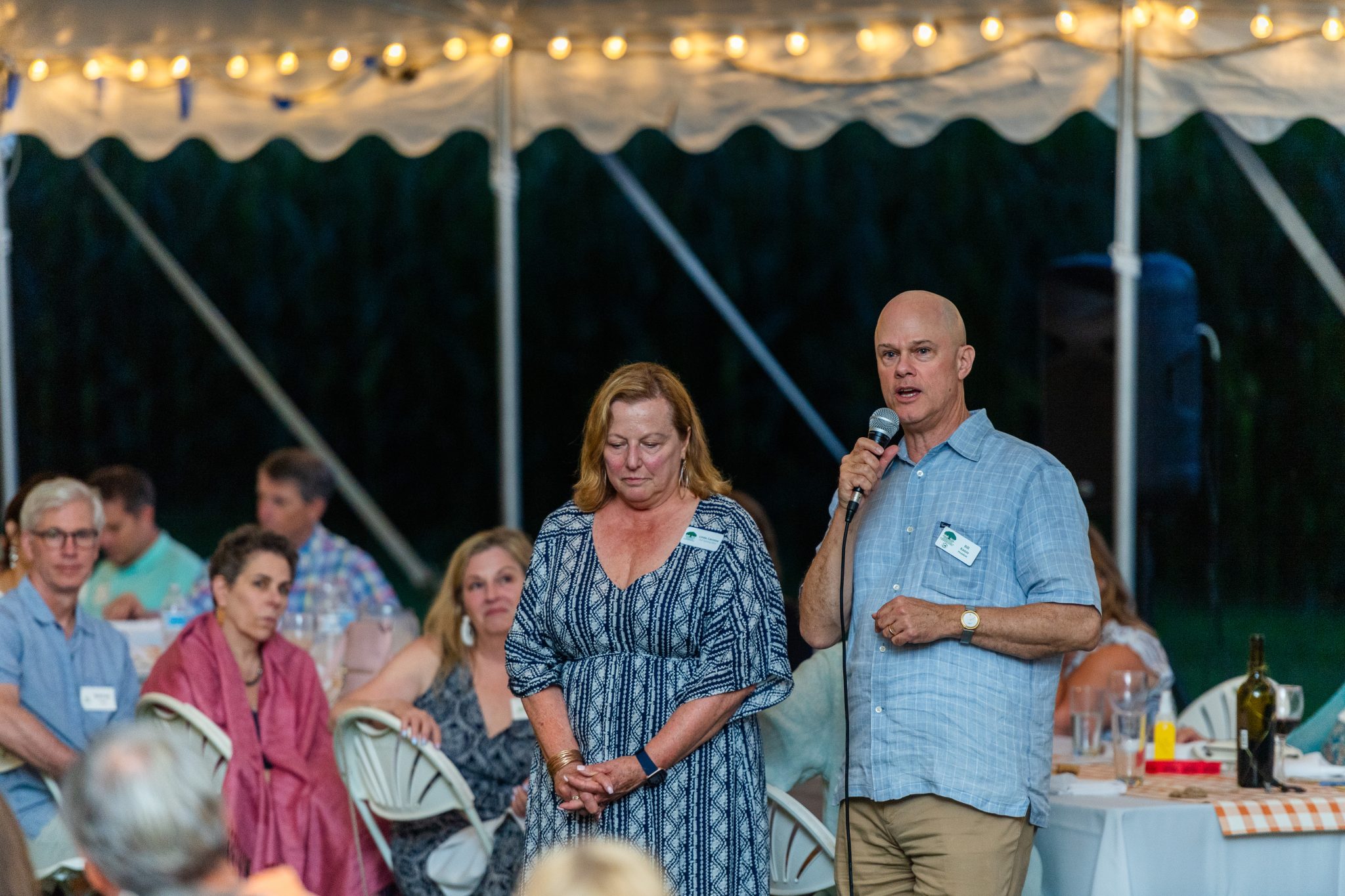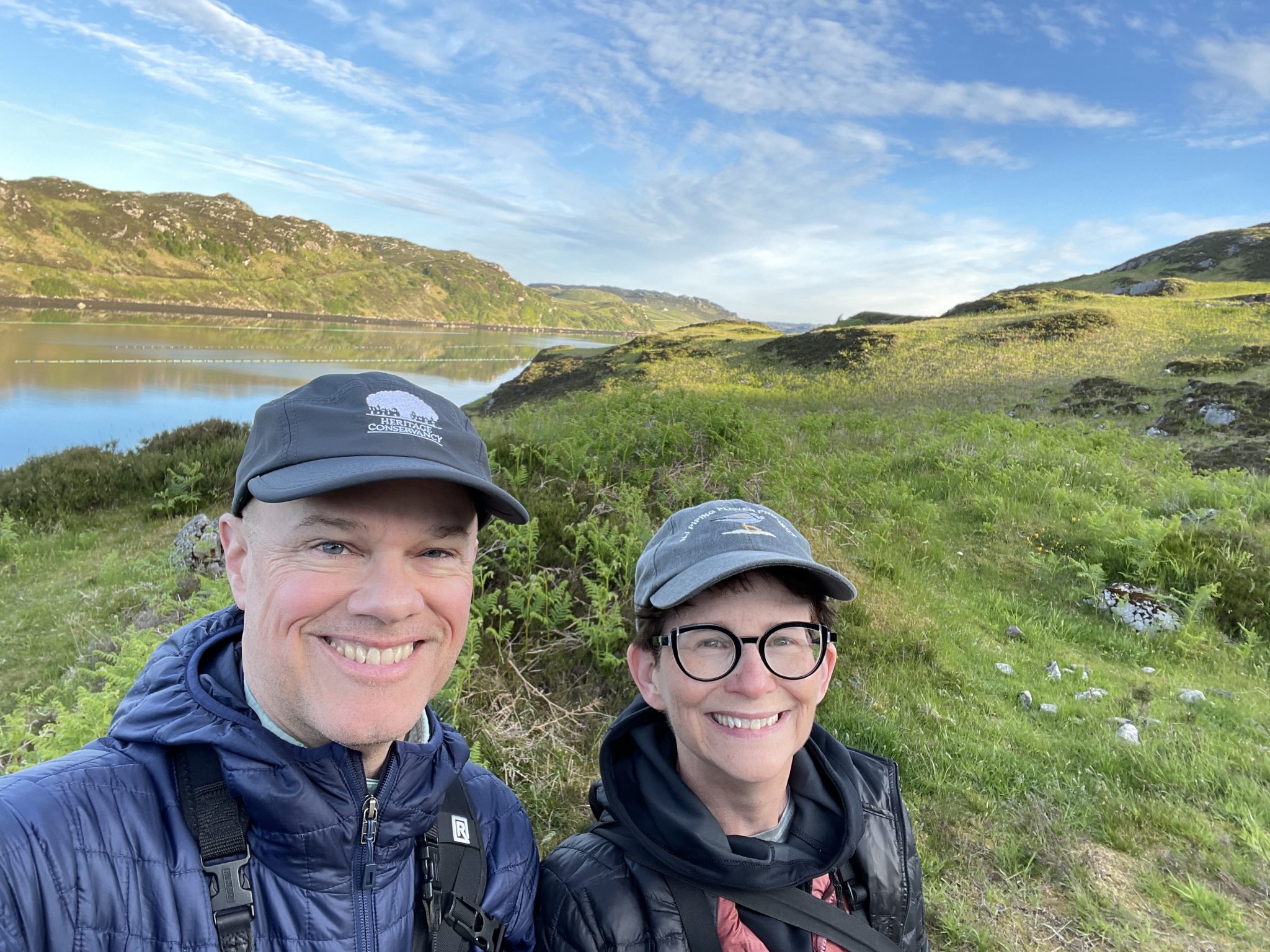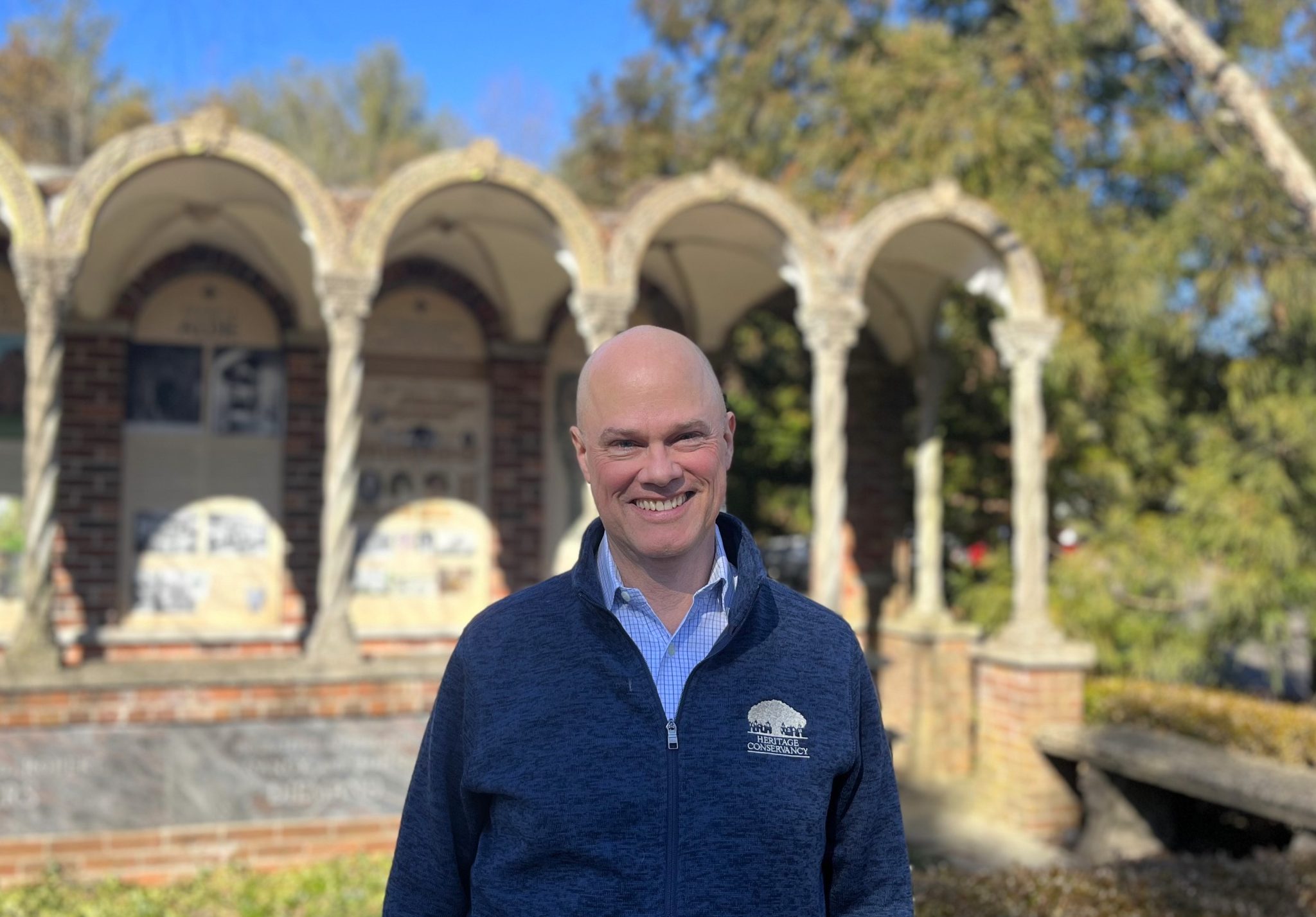“We are nurturing the past, present, and future of our community,” says William (Bill) Kunze, CEO at Heritage Conservancy. “When we imagine what kind of world we want to live in, many of the features people would identify as being important in their communities are things the work of Heritage Conservancy will help ensure.”
Bill joined Heritage Conservancy as President and CEO in fall 2021. His passion for nature and history and how they enrich the lives of all members of our communities guides his work, and the experiences and expertise that led him to Heritage Conservancy fuel his inspiration and strengthen his capacity to realize important change.
Born in Michigan, Bill and his family moved to the Philadelphia area when he was four years old. He was five when the backyard bird feeder his father built sparked a lifelong love of birding. “I was fascinated by the creatures that visited it,” says Bill. “They’re beautiful, they vocalize, and they behave in interesting ways.”
In junior high, he joined his school’s ornithology club and visited Brigantine (now Forsythe) National Wildlife Refuge near Atlantic City, New Jersey on a trip that sparked an epiphany of sorts in the young student. “It was as if this whole world opened to me,” recalls Bill. “All the life on the planet that is not us – we certainly affect it in increasing (and increasingly damaging) ways, but it has its own history, its own rhythm, without reference to us. And I found that fascinating and, in many ways, liberating.”
He also visited Hawk Mountain in Kempton, Pennsylvania, where birds flying at eye level along the ridges captivated him. “The first time I visited Hawk Mountain as a kid, I had a similar experience of a door opening to a different world or different way of being in the world, of experiencing the world.”

Along with learning about birds and the natural world, Bill’s main interests included reading history. A favorite high school teacher stoked the fire. Bill continued his studies in college and earned a B.A. in History from Yale University and an M.A. in History from the University of Chicago. He also worked as a manager and editor with the University of Chicago Press.
Bill returned to Yale to earn a law degree. After a year as a law clerk for a federal judge in Nashville, he worked as an attorney for several years at a firm in Washington, D.C., primarily focused on energy law as well as labor and international trade. He subsequently gained experience in the telecommunications, heavy industry, and financial services sectors during two years at a management consulting firm.
Bill then moved on to become a division chief in the Wireless Telecommunications Bureau of the Federal Communications Commission, where he worked on the regulatory framework for the wireless arena and led antitrust reviews of mergers in the industry.
“Then I had a mid-life crisis,” Bill says. It was a turning point that eventually brought him to Heritage Conservancy.
His fascination with and respect for nature, dating back to childhood, motivated Bill to shift his life’s work to align with this passion. He sought out a leadership role in an organization where he could have an impact.
Returning to the Philadelphia area where he grew up, Bill served as a senior leader with The Nature Conservancy (TNC) for the next 15 years. He led the Pennsylvania office of the global environmental nonprofit, focusing on land and river conservation, government relations, and fundraising, and then moved on to become a national strategy lead for TNC’s “climate-resilient conservation” efforts. The goal was to focus conservation efforts on areas that science suggests will be most resilient to climate change. In other words, says Bill, “Let’s put our money and time into saving places that will still matter 500 or 1,000 years from now.”
Bill’s national position was a new one at TNC and, along with a number of other newer national positions, it was eliminated in a large budget reduction early in the pandemic.
A former member of the Board of TNC’s Pennsylvania Chapter, who had recently joined the Board of Heritage Conservancy, heard that Bill was available and called him. During his time with TNC, Bill had interacted with Heritage Conservancy and “knew it as a good and important land conservation organization.” He was hired as President of Heritage Conservancy in October 2021, succeeding former President Jeff Marshall.
“I feel very fortunate to have been given the opportunity to join Heritage Conservancy,” Bill says. “The Conservancy’s mission focuses on two passions of mine: nature and history. Also, when I worked for a larger organization, I couldn’t always see the impact of my individual efforts. Working for an organization this size, I can actually see the places we’re protecting and know the people who care about those places. I can really see the impact of what I do.”

Working with Heritage Conservancy’s COO Linda Cacossa and the staff and Board, Bill’s first focus was to finalize a new strategic plan for the organization.
Front and center in the strategic plan are strategies to increase the pace and scale of the Conservancy’s land preservation efforts, while also increasing the value of those lands for both nature and people. This means taking on more habitat improvement projects and working toward more equitable access to nature. “Everyone in our communities should have natural lands and open spaces near them,” says Bill. “We all need what these lands offer, including clean air and water, inspiring views, and benefits for body, mind, and spirit.”
Going forward, Heritage Conservancy’s land conservation efforts will increasingly reflect the importance of climate change as the overwhelming environmental challenge of our time. “Land conservation and climate change are connected,” Bill says. “The lands we seek to preserve are already being altered by the changing climate – we see more invasive species, shifting ranges of native species, and increasing stress on natural habitats, and we need to build an understanding of this into how we manage our lands.”

Bill adds that “the land-climate connection also points in the other direction,” because land conservation is a relatively low-cost element of the climate-action equation. “Keeping lands in natural cover like woods and meadows, which absorb carbon, and adopting climate-friendly farming practices to reduce emissions from agriculture, helps to mitigate greenhouse gas emissions as we take on the difficult challenge of converting our economy to non-carbon energy sources. Heritage Conservancy may be small, but what we do here can serve as a model for land conservation organizations across the country and around the world.”
The Conservancy also intends to broaden its historic preservation efforts, which have traditionally focused on structures, to encompass sites and the stories that rise from them. “So much of the visual character of our region is owed to the historic barns and houses the Conservancy has helped to sustain,” says Bill. “And, there’s more to our history than can be seen in these structures alone, especially the history of Native American and African American communities. We want to work with others to recognize the full history of our region.”
The Conservancy also wants more people to experience the nature and history of our region. Building on its successful partnership with Bristol Township schools, as well as public programs it offers around the area, the Conservancy is growing its education and community engagement efforts. “We hope to have as positive an impact on this region’s people as we do on its lands.”
To support these ambitious goals, Heritage Conservancy is investing in expanding the nonprofit’s donor base, seeking everything from annual memberships to “transformational gifts” to achieve greater conservation outcomes.
Bill is optimistic that more people will join in the organization’s mission. “What Heritage Conservancy does not only adds to the vibrancy of our communities today, it ensures that our lands and our communities will thrive far beyond our own lives.”
Author Beth Long is a writer, communications coordinator, and former newspaper reporter who enjoys helping organizations benefit the communities they serve.
